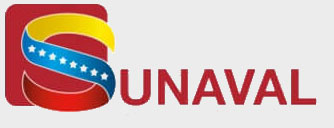Perspectiva Histórica
Horacio Velutini, CEO
The Venezuelan real estate market closely followed oil cycles during the late 20th century. In 1983, an oil boom that had seen the pricerise from $24/barrel in 1970 to a peak of $124/barrel in 1980. With the influx of oil money into the country, the banking sector invested immense amounts of money into the development and purchase of real estate projects. In a rising market, this meant office space at close to $7000 / square meter (M2).
As oil prices dropped, a financial crisis gripped Venezuela in the early 1990’s, precipitating a rapid drop in the value of M2 in the country – reaching its nadir in 1994 at a level of $1000 / M2. Banks, flushed with real estate – but short on cash – needed to quickly monetize or be forced into bankruptcy and liquidation.
The FVI, inspired by the concept of REITs, which had been successfully operated for years, realized that monetization via capital markets was the optimal solution for banks – and for the FVI as a buyer. As a result, we decided to raise capital to buy the now empty office space at the market bottom. The IRSA group, whose largest external shareholder was George Soros, chose to co-invest a total of $76M with our group and so began our involvement with the magnate investor.
With fresh capital, FVI became the largest buyer of offices and at the same time, the largest beneficiary of the Venezuelan’s government’s decision to bring foreign oil capital into the country. Mobil, Shell, Lucent and Phillips Petroleum were all beginning operations and required office space. As the largest suppliers of office space, we received long-term leases with high quality tenants, instantly revaluing our properties. Our monthly leases averaged $24 / M2, which at our $1000 purchase price meant we quickly recovered our invested capital.
Subsequently, the FVI chooses to raise $100MM through an IPO in NYSE via BoNY’s ADR program. With that capital, and the brand
created by providing space to some of the largest companies in the world, FVI bought 150,000 M2 in premium space and rented it to several Fortune 500 companies entering Venezuela.
Mr. Soros, at the end of the 90s, was exiting Latin American investments including IRSA. In order to help monetize his stake, JP Morgan connected us with Sam Zell, who became our partner in the next step in our corporate evolution. We entered the commercial space market, through luxury fashion malls. In addition, a second oil boom began – and with it a new boom cycle in Venezuelan real estate.
Mr. Zell in 2005 decided to exit Venezuela due to Mr. Chavez’s strong anti-american rhetoric and policy of expropriating assets. Our group bought back Mr. Zell’s shares, ending a fantastic and very profitable partnership in the best of terms.
After Mr. Zell’s exit, office M2 continued to rise – from our $1000 purchase price to a high of $5000 in 2008. We saw markets become frothy and made the choice to exit close to 90% of our office space at prices between $4000-5000 / M2, generating the capital to expand internationally. We have now established ourselves as key real estate players in Venezuela and the Dominican Republic, having invested close to $160M in malls (Blue Mall Group) and hotels (JW Marriott Santo Domingo) in the Caribbean island. In Venezuela, we kept our commercial space – malls and parking spaces – which generated growing cash flows.
Today, despite the economic and political crisis being much harsher than our prior experience in the 90’s, presents many parallels.
Premium real estate, with minimal transaction volume, is orbiting the $1500 range. We believe that it can continue to drop, but any sort of political accord and some economic opening will bring massive foreign investment – especially from an approximately $600 billion in savings from Venezuelans abroad. With so much money in the sidelines, the time to find opportunities is now.
Anecdotally, we see the rise in smart money looking at Venezuela by observing that our phones have been ringing off the hook since
late 2018; foreign investors from all over the world asking the right question – How can we bet on Venezuela?
We firmly believe Venezuela is the most asymmetric trade available in the world today. In real estate, we see opportunities in aspects of hospitality, commercial real estate ownership and even residential.
Note: All values in 2018 USD
Horacio Velutini
CEO, Fondo de Valores Inmobiliarios
www.fvi.com.ve


